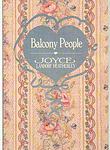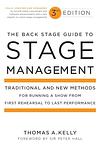The Greatest French "Plays, Fiction" Books Since 1950
Click to learn how this list is calculated.
This list represents a comprehensive and trusted collection of the greatest books. Developed through a specialized algorithm, it brings together 286 'best of' book lists to form a definitive guide to the world's most acclaimed books. For those interested in how these books are chosen, additional details can be found on the rankings page.
Genres
Plays are a category of literature that consists of written works intended for performance on stage. They typically feature dialogue between characters and are structured into acts and scenes. Plays can be comedic, tragic, or a combination of both, and often explore themes such as love, power, and morality. They are meant to be performed by actors in front of an audience, and can be enjoyed both as written works and as live performances.
Countries
Date Range
Reading Statistics
Click the button below to see how many of these books you've read!
Download
If you're interested in downloading this list as a CSV file for use in a spreadsheet application, you can easily do so by clicking the button below. Please note that to ensure a manageable file size and faster download, the CSV will include details for only the first 500 books.
Download-
1. The Bald Soprano by Eugène Ionesco
"The Bald Soprano" is a play that explores the absurdity of everyday life through a nonsensical narrative. It revolves around two middle-class English couples, the Smiths and the Martins, who engage in meaningless and repetitive conversations. The play is known for its unconventional structure, lack of plot, and the characters' surreal behavior, which are all used to satirize the banality and futility of routine and social norms. The title refers to a character who is never seen or mentioned again after the opening scene.
-
2. Marivaux: Three Plays by Pierre Carlet de Chamblain de Marivaux
"Marivaux: Three Plays" is a collection of three significant works by a renowned 18th-century French playwright. The plays explore themes of love, deception, and class in the context of French society of the time. The characters are often caught in complex situations that test their moral values and emotional resilience, providing readers with a profound understanding of human nature and societal norms. The plays are known for their sophisticated language, psychological depth, and intricate plot twists, making them a classic in French literature.
-
3. The Balcony by Jean Genet
"The Balcony" is a play set within a brothel that doubles as a fantasy realm for its clients, who act out their grandiose illusions of power as figures like a bishop, a judge, and a general. As a revolution rages in the streets outside, the establishment's madam and her patrons grapple with the nature of authority and reality, blurring the lines between the authentic and the performative. The play delves into themes of identity, societal roles, and the corrupting influence of power, offering a dark, existential critique of the structures that uphold the facade of societal order and the human desire to escape into illusion.
-
4. The Chairs by Eugène Ionesco
"The Chairs" is a tragic farce that delves into the themes of existentialism and the absurdity of human existence. The play unfolds as an elderly couple prepares a room full of chairs for a gathering of invisible guests. They are eagerly anticipating the arrival of an orator who will deliver a message of great importance, believed to be the culmination of their life's work. As the room fills with more and more chairs for guests that never appear, the play reaches a climax with the orator's arrival, only to reveal the futility of their expectations and the inherent emptiness of communication. The couple's desperate need for validation and their ultimate failure to convey meaning reflect the human condition's search for purpose in a senseless world.
-
5. The Lesson by Eugène Ionesco
"The Lesson" is a darkly comedic one-act play that explores themes of power, absurdity, and education. It revolves around a Professor who tutors a young, enthusiastic Pupil in preparation for a totalizing examination. As the lesson progresses, the initially benign academic session descends into a surreal and oppressive ordeal. The Professor's pedantic instruction becomes increasingly authoritarian and nonsensical, leading to a climax that exposes the dangers of indoctrination and the grotesque potential of authority figures to abuse their power. The play is a poignant critique of totalitarian systems and the absurdities inherent in dogmatic approaches to knowledge and learning.
-
6. Amédée by Eugène Ionesco
The play revolves around the bizarre situation of a couple living with the growing corpse of the husband's friend, Amédée, in their apartment. As the body inexplicably continues to expand, it causes increasing inconvenience and absurdity in their lives. The husband, a failed playwright, and his wife struggle with their mundane existence, their inability to dispose of the corpse, and the surreal events that unfold. The narrative explores themes of stagnation, guilt, and the absurdity of life, as the couple's surreal predicament serves as a metaphor for the inescapable, often grotesque, complexities of the human condition.
-
7. Victims Of Duty by Eugène Ionesco
"Victims of Duty" is a play that delves into the absurdity of the human condition through a surreal and satirical narrative. The story revolves around a couple whose quiet evening is interrupted by the arrival of a detective, who is on a quest to find the protagonist's predecessor in their apartment. As the detective pressures the protagonist to recall past events, the play descends into a chaotic and nonsensical investigation, blending reality with illusion. The work critiques societal obligations and the search for meaning, ultimately questioning the nature of truth and the role of individuals within the constructs of duty and authority.
-
8. Four Plays by Jean Giraudoux
"Four Plays" is a collection of dramatic works that delve into the complexities of human nature and the paradoxes of reality through a blend of fantasy and sophisticated wit. The plays often explore themes such as the corrupting influence of power, the conflict between the sexes, and the struggle between individual desires and societal expectations. With a unique blend of poetic dialogue and allegorical storytelling, the playwright scrutinizes the follies of civilization and the absurdities of human behavior, all while maintaining a sense of humor and a touch of the surreal. Each play within the collection stands as a testament to the author's skill in blending the whimsical with the profound, creating works that are both thought-provoking and entertaining.
-
9. Becket by Jean Anouilh
The play revolves around the transformation of its main character, a man of Saxon origin who rises to become the Chancellor of England and a close friend to the King. However, when he is appointed Archbishop of Canterbury, he undergoes a profound change, embracing his role with a newfound religious zeal that puts him at odds with the King's authority. The play explores themes of friendship, loyalty, and the conflict between church and state, culminating in a dramatic clash that leads to the main character's martyrdom. His journey from a pleasure-loving courtier to a principled man of faith challenges both his own identity and the power structures of his time.
-
10. The Rehearsal by Jean Anouilh
"The Rehearl" is a play that delves into the complex interplay between reality and performance, set against the backdrop of a 17th-century French court. The narrative revolves around a group of actors who are rehearsing a play about the love affair between the Count and the Countess. As the actors immerse themselves in their roles, the boundaries between their real lives and the characters they portray begin to blur. The Countess's own brother, who is directing the play, manipulates the situation, leading to a dramatic intertwining of life and art that questions the nature of truth and illusion. The play explores themes of love, power, and the artifice inherent in both theater and life itself.
Reading Statistics
Click the button below to see how many of these books you've read!
Download
If you're interested in downloading this list as a CSV file for use in a spreadsheet application, you can easily do so by clicking the button below. Please note that to ensure a manageable file size and faster download, the CSV will include details for only the first 500 books.
Download





